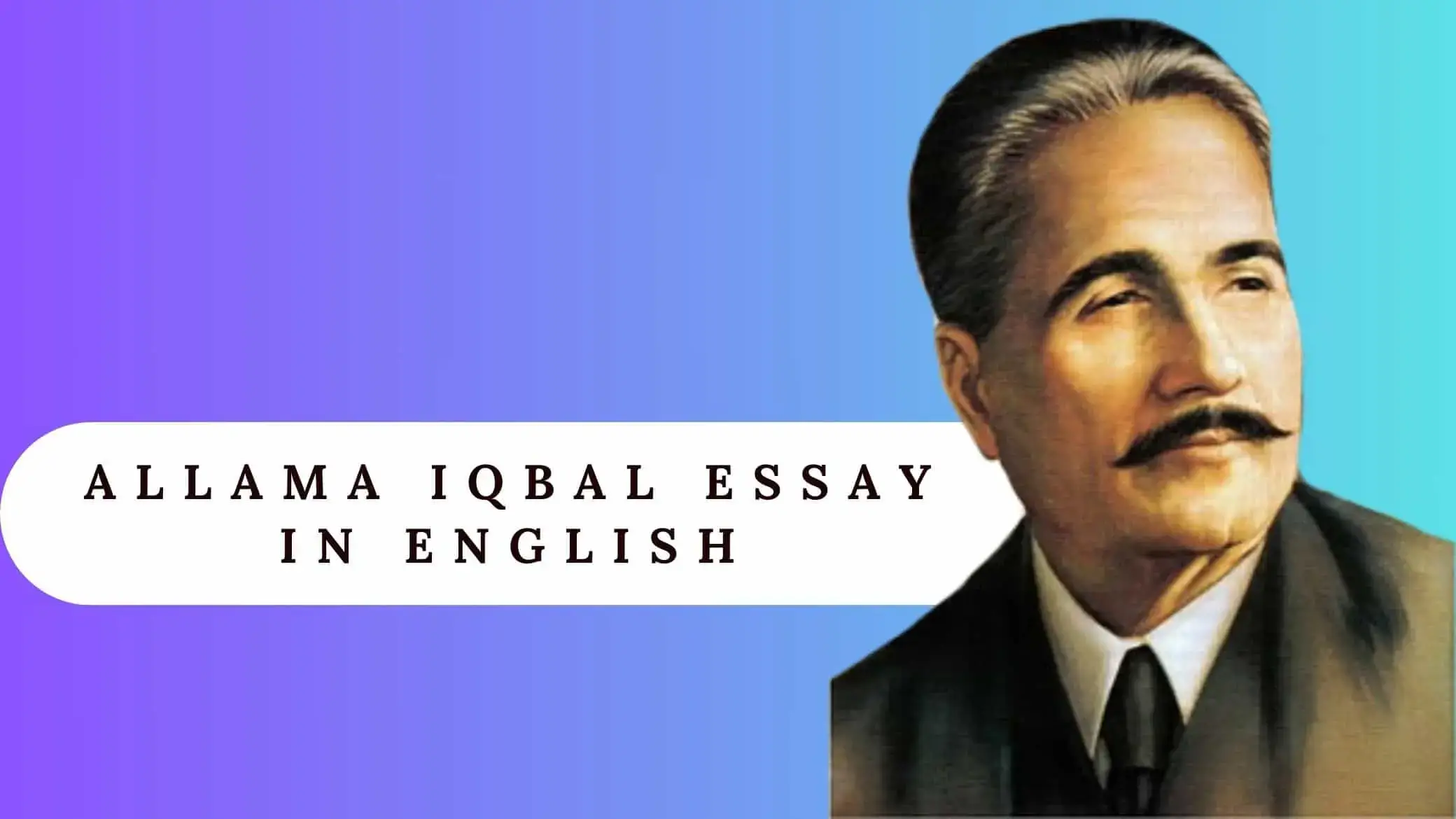Allama Iqbal Essay
Iqbal is one of the best poets. He is our national poet. Allama Muhammad Iqbal was born on November 9, 1877 in Sialkot. His father’s name was Sheikh Noor Muhammad, who was called Mianji by everyone, and his mother’s name was Imam Bibi, who was called Beji by everyone. Allama Iqbal had two brothers and four sisters.
Iqbal’s early education was from Maulvi Mir Hasan’s madrasa. After that he passed matriculation from Scotch Mission High School in 1893 with distinction. In 1895, Iqbal passed the FA (Intermediate) examination from Surrey College Sialkot and came to Lahore for further education. He did his BA in 1897 from Government College Lahore and MA in Philosophy in 1899.
Worked as a teacher in National College and Government College for some time, then moved to Wilayat for higher education. He did Barat Law from England and PhD from Germany.
Allama Iqbal was a great poet of Urdu and Persian. Through his poetry, he instilled in the Muslims of the subcontinent a longing and dedication for freedom. His works include Asrar and Ramuz, Payam Mashreek Zaboor Ajam, Payam Mashreek, Bang Dara, Zarb Kaleem, Bal-e-Jabreel. He took full part in the political struggle of Muslims. Went to London to participate in round table conferences. Participated in Tehreek Pakistan as President of Muslim League for two years.
Apart from poetry circles, Allama Iqbal was dear to every heart among common people as well. College professors, students and others used to attend his service and benefit from his ideas. His door was open to everyone. He lived his life very simply. They were not tolerant of hardship in food and other things.
Some people translated his speech into other languages. Professor Nicholson translated Israr Khudi into English. Apart from this, his words have also been translated into different languages.
He died on April 21, 1938. The news of his death spread like wildfire, everyone became depressed and every eye was filled with tears. He has left this world but his words are still alive among us today and will continue to live. The pain and suffering for Muslims in his poetry will always keep Muslims aware of its reality.
